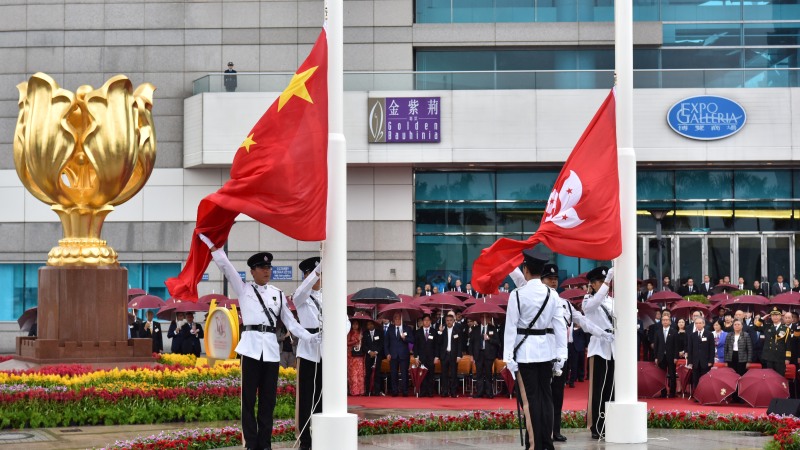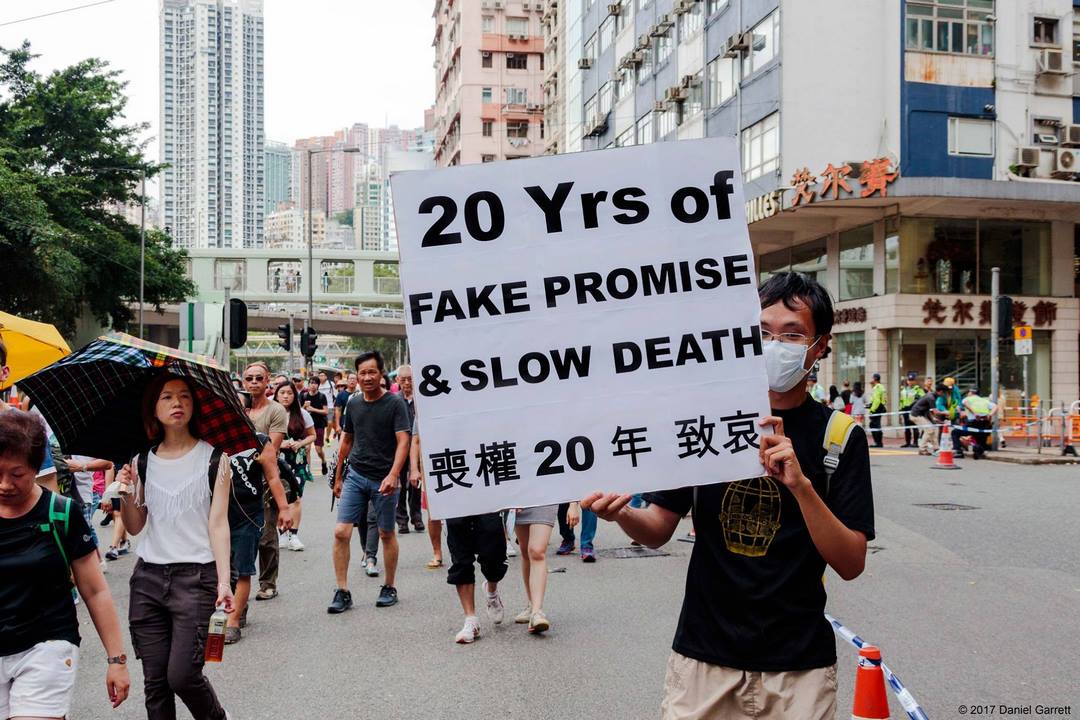Here’s the bad news: Would-be Joshua Wongs are now swallowing their outrage and putting away their protest banners lest they wind up behind bars like their youthful hero; meanwhile, the Hong Kong government has become little more than a mouthpiece for the powers that be in Beijing and, thanks to those powers, you might soon be arrested for singing the Chinese national anthem, March of the Volunteers, out of tune.
Yes, these are dark times for “one country, two systems.”

But here’s the good news: Hong Kong’s quest for democracy will continue, the people will speak louder than their putative leaders, and in due time no one will want to sing March of the Volunteers—in or out of tune. Simply put, our system is better than theirs, and it will not only survive; it will prevail.
Not immediately, mind you. Indeed, things could get a lot worse in the near term as we suffer more heavy-handed interference in our affairs from the liaison office, more violence born of anger and frustration, more jailing of dissidents, less freedom of speech and more self-censorship and editorial boot-licking in the profit-driven mainstream media.
The profound disconnect between Hong Kong’s younger generation and the governing elite on both sides of the border spells greater trouble ahead, and our out-of-touch Commission on Youth, chaired by the 37-year-old heir to a real-estate empire—Lau Ming-wai, son of the infamous Joseph Lau Luen-hung—will do nothing but look on in feckless wonder.
It’s not going to be pretty, and one should despair for this lost generation of Hong Kong youth, whose diminishing prospects in virtually all aspects of life in Hong Kong—from career aspirations to housing to politics—lie at the heart of the city’s problems. Their government and their city have failed them, and they see no signs of improvement any time soon. Their efforts and sacrifices—during the campaign against patriotic education, during the Occupy movement and beyond—have not been in vain, however.

It may bring little comfort for now, but we should remember that 2047, the year Sino-British Joint Declaration expires, is still a long way off. Presently, a rising China may be crushing political dissent at home and building bridges, railways and port facilities around the world as President Xi Jinping prepares for anointment as a neo-Mao Zedong at next month’s Communist Party congress.
Even now, though, which people in which parts of the world look at the Communist Party’s 68-year reign over China as something to be admired and emulated? Inevitably, China’s brutal, authoritarian political system will fall – like every such system before and after it—due to its inherent illegitimacy.
Because the party grounds itself in moth-eaten Marxist-Leninist dogma that long ago passed its sell-by date and offers no guiding moral principles that aren’t rooted in rank hypocrisy, it has depended on breakneck economic growth and appeals to ethnic pride and nationalism to win the support of the people.
This has produced the so-called Chinese miracle, and it truly has been astonishing: nearly 40 consecutive years of economic growth averaging just under 10 per cent a year, the fastest economic expansion in history, which has lifted some 700 million people out of abject poverty and secured China’s place as a world power to be reckoned with.
But this galloping growth has come at a huge cost: rivers and streams foaming with industrial waste and skies draped in a grey pall of poisonous pollution, not to mention rampant corruption that eats away at the party’s sick soul.

With China’s economy slowing significantly over the past several years and unlikely to hit double figures again, Chinese leaders, starting with Xi , are clearly worried about keeping the economic juggernaut churning in a country with one of the world’s worst wealth gaps that is still considered to be a developing nation.
To put things in perspective, despite its stunning growth, China’s per capita income is a mere US$8,000 a year and hundreds of millions of its 1.3 billion people remain poor. Remarkably, as of 2014, one per cent of China’s population owned one-third of the country’s wealth. These figures just aren’t good enough to keep an ideologically bankrupt Communist Party in power for another 68 years—or even, remembering the expiry date for China’s Hong Kong handover agreement with Britain, for another 30.
Thus, we now see Xi’s grandiose Belt and Road initiative, which intends to turn much of the rest of the world into one colossal Chinese construction project so as to keep China’s economic engines purring and its massive population happy. But the financing of this US$3 trillion behemoth is problematic at best, as is the coordination and cooperation expected of the 60-some nations that are supposedly involved.
At some point—and, again, it won’t take 30 years—China is simply going to run out of economic gas, leaving the country with a corrupt ruling party that has lost its only claim to legitimacy and no marching army of volunteers to sing its praises.
Until then, Hong Kong needs to guard it core values and push on. In the end, David will outlast Goliath in this contest.
